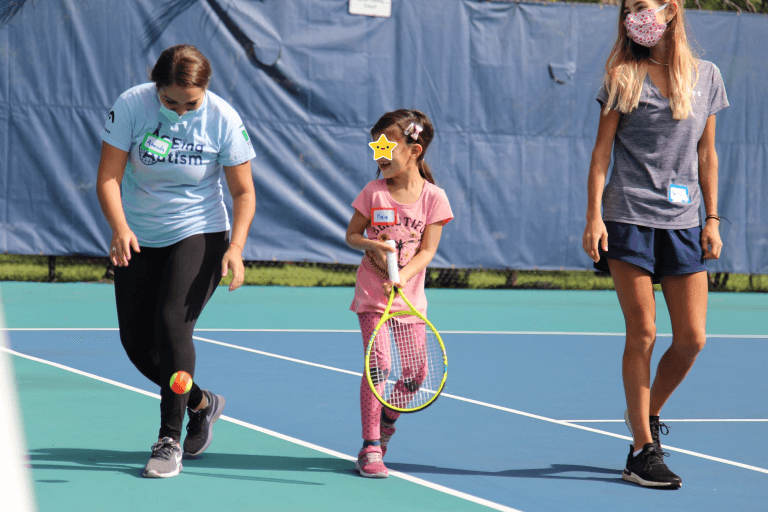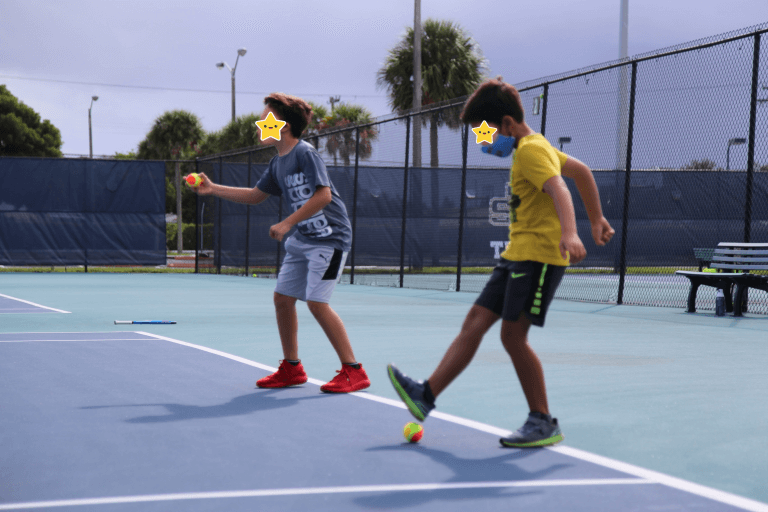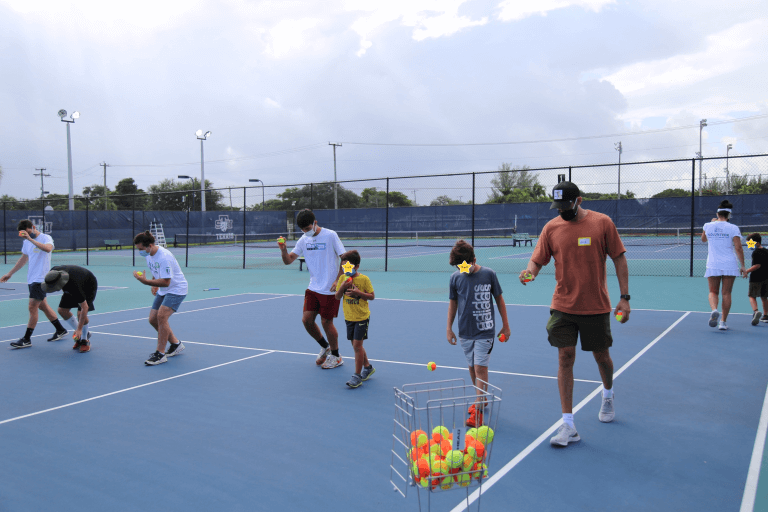News
Tennis program for autistic children expands with grant from USTA Florida Foundation
“ACEing Autism was able to meet Zoe where she was and start building, which is what gave us the courage to try so many other activities that have given Zoe a richer, fuller life. It’s what connected us to other families with kids on the spectrum.”
— Mira, parent to ACEing Autism participant Zoe
While the majority of children with autism struggle with motor-skill deficits and social skill limitations, both of which are helped by movement and physical activities with other children, there are few organized recreational sports that cater to children on the autism spectrum. But families in eight Florida cities, now expanded to Miami-Dade County (Miami Gardens) and Okaloosa County (Destin, on the Florida Panhandle) with grant assistance from the USTA Florida Foundation, are finding that access to the ACEing Autism tennis program is meeting those needs, and more.

The ACEing Autism program is seeing massive success.
“Access to sports and recreational activities for children with autism is severely lacking and is desperately needed for their development,” says Richard Spurling, ACEing Autism executive director and program co-founder. “As of 2020 the prevalence of Autism Spectrum Disorders is one in 54 in 8-year-old children, and there are over one million children with autism in the U.S. and approximately 50,000 individuals with autism living in Dade County.”
Autism studies reveal how movement and physical exercise are providing cognitive gains for both children and adults. In the ACEing Autism program, each participant is paired with 1-2 volunteers, and a visual schedule is provided to aid children in communicating lesson plans and the needed visual support. The visual modeling helps children make progress at their own pace and comfort, and structured lesson plans are followed to provide familiarity and alleviate stress for participants.
Short-court tennis is played with smaller, easier-to-control racquets, smaller nets and lower-bouncing balls, similar to the court sizes and equipment used to introduce beginner children aged 10 and under to tennis.

They teach kids the fundamentals of tennis in an encouraging way.
“Our weekly tennis program is primarily focused on providing an experience where they learn tennis skills and are also able to work on social and behavioral skills,” Spurling says. “The secondary beneficiaries of our program are the parents and volunteers who are aiding the participants. Parents are able to receive some respite and can watch their children play tennis while connecting with other parents in their autism community. High school and college students volunteer their time and in return learn about autism and giving back to their community.”
The grant from the USTA Florida Foundation, which serves youth and adult programs across the state, assists the program with court rental fees, tennis equipment, curriculum training for volunteers and marketing of the program. The new program sites cater to children with autism between the ages of 5-18, providing 6-8 week programs in the fall, winter and spring.
ACEing Autism, Spurling says, reminds parents that their children need recreational sports for fun and social development. The program many times results in siblings becoming interested in tennis and signing-up for local parks and recreation or school programs, with tennis becoming a family event.

The program is putting smiles on the lives of every child it touches.
“I distinctly remember realizing that when we got out of the car each week, it was now Zoe, with a huge smile on her face, pulling me across the parking lot so we could get to tennis even faster,” said tennis parent Mira, a former college player who was unaware of the program until her daughter was diagnosed with autism. “I won’t suggest it’s been a straight line up with tennis, or really with anything where Zoe is concerned. We have hit plenty of challenges and many more lie ahead. But she still hurries across the parking lot with a smile on her face when we get to tennis each week. And while she may or may not ever play in a competitive match, being a tennis player is a central part of her identity and reputation — and a lifelong source of fun.”
For more program information go to aceingautism.org.